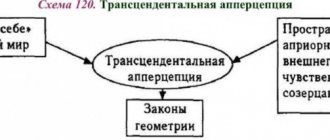Charisma concept
From the very beginning of the existence of mankind, society has had leaders who are capable of not only showing the way, but also leading. Even during periods of severe hardship, their followers did not hesitate for a moment, and endlessly believed in their leader, emperor or king.
This phenomenon was called “charisma,” and a person with such qualities began to be called a charismatic leader. The word itself in translation means “gift of God,” and indeed, this phenomenon is considered by many researchers to be a set of supernatural, or at least superhuman abilities. Initially, this term was used only in relation to rulers or military leaders, but starting from the middle of the last century, almost any person who stood out from the crowd began to be called this way, and often not by personal qualities, but by success, appearance or self-promotion. What a charismatic leader means will be discussed in this article.
Classifications
The concept of charismatic leadership was developed in sociology and psychology. They return interest to the theory of leadership qualities and the theory of “omnipotent man.” The concepts are united by an exceptional character trait - charisma. Charismatic rule or leadership is distinguished not only by the duality of communication - from one person to another - but by collective interaction. A charismatic personality influences the followers of the group, instilling in them collective interests and values. People tend to identify themselves with a representative of authority and the group as a whole. Being part of a team allows you to increase your own importance. Identification with the collective indicates the dominance of group needs over personal needs, even to the detriment of oneself. The sacrifice of group members strengthens the identification bond, reinforcing the value of the collective.
The charismatic type of leadership, in the understanding of psychology, is based on faith in one’s own strength, competence, and determination in solving difficult problems. There is a correlation between a leader’s self-confidence and the performance of team members: the higher the self-confidence, the greater the group’s ability to show initiative, creativity, and perseverance.
Overall team confidence is achieved through collective expectations of a successful outcome. With this type of interaction, cooperation between the followers and the leader is strengthened.
The founder of the use of personal charm as the basis of leadership was M. Weber. The scientist believed that obedience was the result of inference, habit or sympathy. In the eyes of others, a person endowed with certain qualities is perceived as a superman. M. Weber said that such a person has clairvoyant abilities. Huge emotional resources of the individual allow you to captivate and conquer. A charismatic manager or leader is not just a person with charm. A true leader knows how to attract people and make his own beliefs a priority for the entire team. It is important to learn how to manage abilities, because having qualities is not a guarantee of power.
Charismatic leadership is built on clear requirements for the leader, his own abilities and skills that the person demonstrates. Those around you must believe that their obedience is not in vain and leads to certain results.
Ethical and unethical charismatic leader
The concept of “charismatic leader” in sociology
The concept of “charismatic leader” was introduced into sociology by the German professor of theology and culture Ernst Troeltsch. Subsequently, this term was developed by the German sociologist Max Weber, who formulated a classic definition for it and gave impetus to a comprehensive study of this phenomenon. Some modern researchers propose to give this definition a much narrower concept in order to exclude from the general series such categorically different personalities as, for example, the prophet Moses and Hitler, Gandhi and Genghis Khan.
From the point of view of Weber's concept, the phenomenon of charisma cannot be good or evil, virtuous or immoral. This, however, does not mean that the qualities and activities of such a leader cannot be assessed according to universal human criteria. Thus, many scientists, to remove uncertainty, use another definition, which more clearly allows us to clarify the concept of “charismatic leader.” George Barnes introduced a refined term into sociology, believing that in most cases it is more appropriate to apply the concept of “heroic leader” to outstanding individuals.
The Essence of Charismatic Leadership
Definition 1
Charismatic leadership is a type of leadership based on the attractiveness of the leader’s personality, which evokes support and recognition of authority in followers (subordinates).
Definition 2
The set of qualities and personality traits that evoke pleasant impressions and feelings in others is called charisma.
It is charisma that provides its owner with leadership. Charisma in some theories is considered the source of a leader's power and the reason the leader influences followers. Charisma reflects a leader's ability to influence his subordinates through his personality characteristics and management style.
Note 1
According to a number of experts in the field of leadership and social psychology, the stronger the influence on people, the more they admire the personality of the influencer.
In the process of studying the phenomenon of leadership, many attempts have been made to determine the qualities of a leader that make it possible to influence people. Research has proven that the set of these qualities is not a sufficient condition for leadership, but in most cases it is necessary:
Finished works on a similar topic
- Coursework Charismatic leader 490 rub.
- Abstract Charismatic leader 270 rub.
- Test work Charismatic leader 200 rub.
Receive completed work or specialist advice on your educational project Find out the cost
- Confidence in yourself, your strengths and ideas;
- The ability to attract attention to an idea by convincing and explaining its meaning;
- Willingness to take responsibility and risk;
- Ability to assess the situation and see prospects;
- Behavior that does not conform to generally accepted norms.
These character traits and behavioral characteristics of the leader allow him to quickly make decisions and quickly adapt in the unstable conditions of a constantly changing external environment. Followers of a charismatic leader are distinguished by a high level of motivation, since they are truly passionate about the common cause and approach the tasks at hand with enthusiasm. That is why charismatic leadership allows you to achieve high results.
Charismatic leaders in human history
History has preserved for us many examples of those who can be called charismatic leaders. First of all, these are famous commanders and rulers: Alexander the Great, Genghis Khan, Napoleon. In the twentieth century, many more such figures are known, and today almost every leader of a successful company or social movement claims this role. The study of this phenomenon is accompanied by certain difficulties. Of course, this happens because science needs an “ideal” definition of this or that concept, but it is not possible to idealize and even systematize individuals directly. A charismatic leader is such an extraordinary figure that it is practically impossible to get an unambiguous answer to the question of whether this or that leader was such. In addition, such a person always appears in crisis conditions, and precisely at a turning point in events, and it is not always possible to understand exactly whether his appearance determined their course positively or negatively.
Charismatic power as an ideal type
Charismatic power was defined by Max Weber as one of the ideal types. In his research, he does not pay enough attention to how a leader becomes and remains a ruler, preferring to study more the relationship between citizens and leaders, that is, the so-called social factors.
Thus, M. Weber determines that traditional power is based on the fact that citizens automatically agree to this system precisely because of its existence. This means that people emotionally and often despite the effectiveness of the system continue to support the existing system. On the contrary, legal-rational government, precisely because of its effectiveness, maintains in citizens faith in the legitimacy of government, which gives people confidence in the justice of such power.
Sources
- https://obu4ayka.ru/psihologiya/__trashed-1006.html
- https://fb.ru/article/251535/harizmaticheskiy-lider-harakteristiki
- https://fb.ru/article/254053/vlast-harizmaticheskaya-ponyatie-primeryi-izvestnyie-harizmaticheskie-lideryi
- https://fb.ru/article/251073/harizmaticheskiy-lider-opredelenie-harakteristika-kogo-mojno-nazvat-harizmaticheskim-liderom-ponyatie-harizmaticheskiy-lider-vvel-v-sotsiologiyu-kto-harizmaticheskiy-lider-eto
- https://psyhoday.ru/obshchenie/harizmaticheskoe-liderstvo.html
- https://mypsihologiya.ru/lichnost/kto-takoj-harizmaticheskij-lider-i-kak-im-stat
Vladimir Ilyich Lenin
Who can be called a charismatic leader in Soviet history? A typical example of such a leader can be called V.I. Lenin, the leader of the Bolshevik Party, the leader and leader of the socialist revolution in Russia. Indeed, according to contemporaries and fellow party members, Lenin stood out among political figures in that he was the only one who was trusted and followed without any reservations. Moreover, Lenin, a charismatic leader, truly had the ability to explain complex economic as well as ideological issues to the vast uneducated masses. They listened to him in fascination, holding their breath, but it should be remembered that this was the beginning of the twentieth century, and the speaker simply did not have any serious technical means other than his own voice.
Characteristic model of government
Charismatic political leaders deserve special attention. As if according to the classics of the genre, charisma leads people to power, and in the end they become rulers. But here it is more appropriate to say that many rulers have charisma, but not all. History knows rulers who not only did not receive respect and recognition, but did not even leave behind at least some memory.
Let's assume that state Z is headed by a charismatic leader. Such a state is always united. At the same time, the ruler does not resort to military force and his position. The people follow him on their own, voluntarily. It will be characteristic of such a country that its population does not organize revolutions, protests, or migrate to other states.
Joseph Vissarionovich Stalin
Joseph Stalin is a charismatic leader, the father of the people, the creator of the most unusual and almost fantastic state ever known. Assessment of Stalin's personality is almost always ambiguous and often biased. Undoubtedly, this ruler had a unique ability to destroy his enemies, who most often were also enemies of the state. Much of his charisma and deification among his fans, undoubtedly, is not purely leadership qualities (although he possessed them to the fullest) - but the sense of fear that he inexplicably could and can inspire even today.
Many researchers are not inclined to consider Stalin a pure charismatic leader, although it is worth recognizing that his fans and followers were ready for self-sacrifice in the most literal sense of the word for the sake of their leader. Ordinary soldiers went on the attack with his name, which in itself is quite a rare occurrence. Typically, followers in these cases were content with an idea (for example, freedom) or a specific concept of the Motherland, their own country.
Charismatic leader: rejoice or cry?
Translated from Greek, “charisma” is a gift of the gods, grace. In the list of business qualities, the presence of such a quality as charisma in a manager makes his work more effective. How does one person's personal magnetism cause others to seek submission? The term “charisma” was introduced into classical sociology by Max Weber. In his view, charisma is the quality (or set of qualities) due to which others recognize the bearer of charisma as a leader, a leader, that is, a person who is able to convince that he is right and lead. That is, whether a person is charismatic or not can only be determined by the people who surround him.
Today our hero is Ostap-Suleiman-Bertha-Maria Bender Bey. Agree, it would be absurd to consider this topic using any other example.
So, the Great Combinator! The immortal phrase: “I will command the parade!”, and so, simply and without the slightest hesitation, the charismatic takes over the leadership. There are plenty of examples of his charismatic charm, and not only among women... He easily gains trust and wins the sympathy of a wide variety of people, regardless of gender, age, intellectual and cultural level, social status or profession.
The key that opens people’s hearts to Ostap is his ability to accurately evaluate their credo and quickly find a common language with his interlocutors, telling them exactly what they would like to hear. Ostap always takes into account the inclinations and emotional state of his interlocutors, masterfully using them to achieve his goals. Let’s remember the founding meeting of the “Union of Sword and Ploughshare” or the visit to the Vasyukin chess players. Ostap immediately tells the elderly retired monarchist Khvorobyov a dream he composed about the visit of the Sovereign Emperor to the city of Kostroma, next to whom stood the Minister of the Court, Count Fredericks, and the Chief of Police. As a result, the barn for repainting the “Antelope” was willingly provided by the grateful owner to a handsome young man who fully shared his views, and the writer Ukhudshansky willingly purchased from him the Ceremonial Set - an indispensable tool for composing anniversary articles, service feuilletons, as well as ceremonial poems, odes and troparions . Masterly orientation in the situation, instant assessment of a person’s subconscious needs, inspired speech - and voila!!!
But, possessing natural charisma and being an unsurpassed master of establishing relationships with representatives of various social strata, Ostap is not able to maintain them for any long time. He views his partners as temporary travel companions, whose need is determined by immediate needs. Ostap can never create any kind of capable team, and his followers - be it Vorobyaninov or the motley crew of the Antelope - turn into an additional burden. Such demarches most often end with an emotional decline and a desire to stay away from such a leader.
Charismatic leader: rejoice or cry?
Most often, sanguine people play the role of charismatic leaders: talking is their favorite pastime, the more people hanging around, the better. They easily ignite people with their vision: “Can you imagine? 100,000 inhabitants and everyone in white pants" or "The capital is automatically transferred to New Vasyuki!" tedious organizational work for them - it’s easier to shoot yourself and start over!
The choleric person in the role of a charismatic leader is the leader of all times and peoples. Cholerics have only two opinions: their own and the wrong one, i.e. they can take anyone anywhere, provided that everyone obeys. Well, if they don’t... well, well, those who are not with us are trash!
A melancholic person in the role of a charismatic leader... It’s hard to imagine, but you can try










